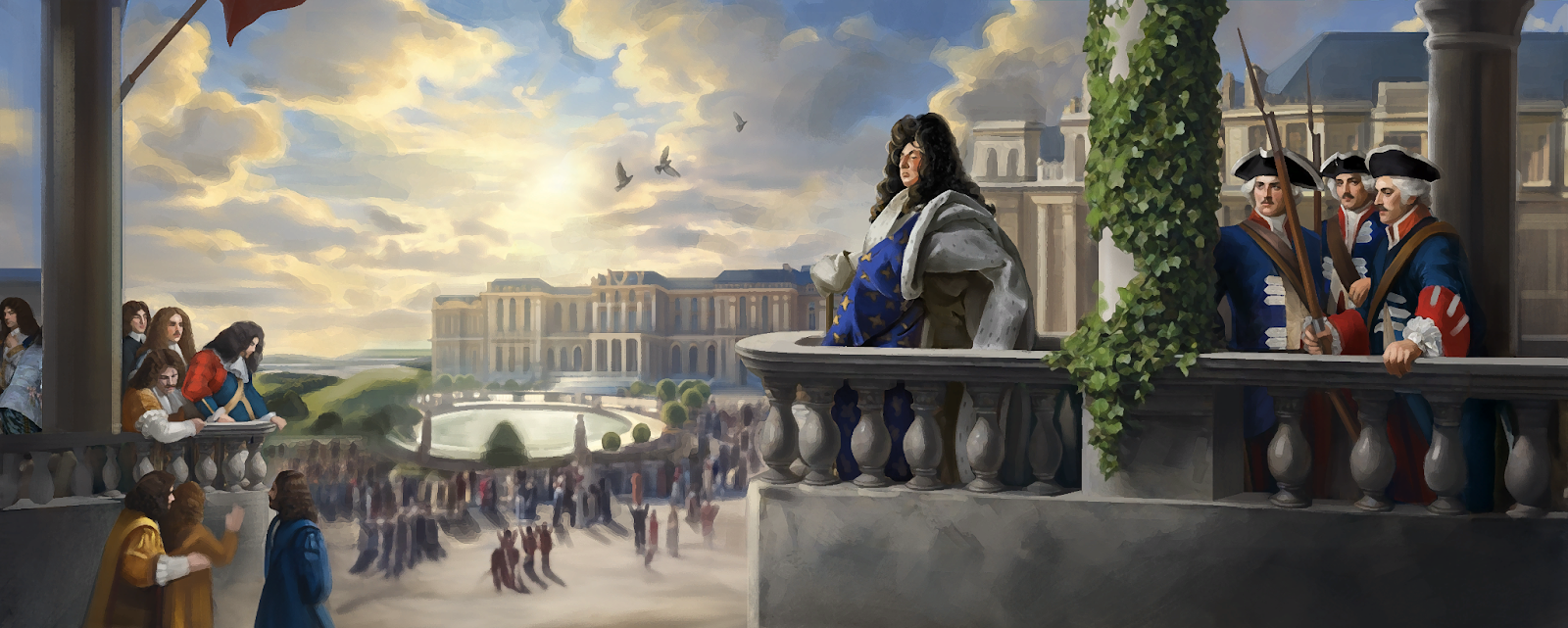欢迎来到第五届 Tinto 会谈,我们将在这里讨论我们即将推出的代号为「凯撒计划」的绝密游戏的设计。

朕即国家!哦,你说的是阶级,抱歉..不是我..

这是政府视图中的阶级部分,在这里你可以看到他们的权力、当前的满意度、其趋向的均衡以及其当前拥有的特权。
那么什么因素会影响遗产的满意度均衡呢?他们获得的特权、当前的稳定性、一些改革可能会影响他们、一些法律可能会影响他们、以及你如何向他们征税等等。举一些例子,神职人员对更高的宗教团结感到更高兴,市民希望你的国家拥有更多的市场中心。

WiP ui、临时图形和无图标等。
Welcome to the fifth Tinto Talks, where we talk about the design for our upcoming top secret game with the codename ‘Project Caesar.’
朕即国家!哦,你说的是阶级,抱歉..不是我..
The state is me! Oh, you meant E-state, sorry.. not me ..
今天我们将详细介绍游戏中的核心系统之一,谈谈阶级是如何运作的。
Today we will go into detail about one of the core systems in the game, and talk about how estates work.
首先,凯撒计划中有四个等级,它们大多与社会阶层一一对应:贵族、神职人员、市民和平民。还有代表国家本身的王室。(后续已增加至五种或更多)
First of all, there are four estates in Project Caesar, which mostly map 1 to 1 with a social class: Nobility, Clergy, Burghers and the Commoners. There is also the Crown, which represents the state itself.
每个阶级根据属于该阶级的人口数量获得权力,也可能根据地方属性有所不同,某些贵族可能在某个地区拥有非常高的权力,或者在特定的城市,市民拥有着根深蒂固权力。
Each estate gains power based on the amount of population belonging to the estate, which is also modifiable by local attributes of where the population is, where some nobles may have very high power in a certain area, or whether a specific city has entrenched burgher rights there.
这是政府视图中的阶级部分,在这里你可以看到他们的权力、当前的满意度、其趋向的均衡以及其当前拥有的特权。
This is the estates part of the government view, where you can see their power, current satisfaction, the equilibrium its trending toward, and what privileges it currently has.
每 1,000 名贵族为其阶级赋予 +50 阶级权力,而 1,000 名农民仅默认赋予 +0.05 阶级权力。然后,如上所述,阶级权力首先受到地块的本地化影响,然后在整个国家层面受到法律、改革以及最重要的特权影响。
Every 1,000 nobles gives +50 estate power to their estate, while 1,000 peasants merely give +0.05 estate power as default. Then these are modified locally in every location, as mentioned above, and then in the entire country by laws, reforms and most notably the privileges that you have given the estates.
所有4个等级和王室的阶级权力总和是100%,那么这就是各个阶层能有效获得的全部权力。
The total power of all the 4 estates and the crown then together all add up to 100%, which is the effective power they have.
根据您的王室权力,高了有奖励,低了有惩罚,涉及撤销阶级特权的成本、改变法律政策的成本、内阁的效率、宫廷的预期成本等方面。如果你的王权较弱,你需要赢得各阶级的支持,否则你不会从你试图召集的任何议会中得到太多好处。
Depending on your crown power, you either get a scaling penalty or scaling bonus, on aspects like the cost of revoking estate privileges, the cost of changing policies in laws, the efficiency of the cabinet, the expected costs of the court, and other things. If your crown power is weak, you need to have the estates really satisfied, or you will not get much out of any parliament you try to call.
四个阶层都有各自的满意度和满意度平衡值。一些阶层和某些国家的阶层的满意度将比其他国家更快地达到平衡值。每个阶层都有2个因素,在这些因素中,他们的满意度会影响整个国家,满意度超过50%会获得按比例结算的奖励,低于50%会受到按比例结算的惩罚。
Each of the four estates has a current satisfaction and an equilibrium it will move towards. Some estates, and some countries, will have the estate satisfaction moving quicker to the equilibrium than others. Each estate has 2 factors per type of estate in which their satisfaction impacts the entire country, where satisfaction above 50% gives a scaling bonus, and below, a scaling penalty.
如果满意度低于25%,该阶级将不会提供任何税收。最重要的是,阶层满意度也会影响属于该阶级的人群的满意度,可能会引发叛乱派系甚至内战。
If the satisfaction is below 25%, this estate will not provide any levies. Most importantly, the estate satisfaction also impacts the satisfaction of the pops that belong to that estate, possibly creating rebel factions or even civil wars.
- 贵族阶级会影响你的威望和反间谍活动。
- 神职人员阶级会影响你的研究速度和外交声誉。
- 市民阶级会影响您的商业力量和生产效率。
- 平民阶级会影响你的粮食产出和稳定成本。
- Nobility impacts your prestige gain and your counterespionage.
- Clergy impacts your research speed and your diplomatic reputation.
- Burghers impact your merchant power and the production efficiency.
- Commoner impacts your food production and your stability costs.
So what impacts the satisfaction equilibrium of an estate? The privileges they get, the current stability, some reforms may impact them, some laws may, how you tax them, and much more. Some examples include clergy being happier with higher religious unity or burghers liking having more market centers in your country.
阶级特权
estate privileges
阶级特权呢?您可能为了向他们征收更多税,又或者是获得他们在议会中的支持,而不得不授予阶级相应的特权。所有特权都会影响他们的阶级权力,许多特权还会增加他们的满意度平衡值。它们都会对游戏玩法产生一些符合特权的影响,并且通常还会影响其国家的社会价值。
Estate Privileges then? You may feel forced to grant privileges to estates to be able to tax them more, and you may be forced to grant privileges to get their support in parliament. All privileges impact the power of their estate, and many also increase their satisfaction equilibrium. They all have some impact on gameplay fitting the privilege, and often they also impact a societal value of their country.
WiP ui、临时图形和无图标等。
WiP ui, temporary graphics and no icons etc.
游戏中有许多各具特色的特权,其中有相当一部分的取决于您选择游玩的国家和国家类型。
There are many different privileges, and many unique ones depending on where and what type of country you play.
我们前面提到了税收,虽然这不是我们详细介绍经济体系的开发日志,但值得一提的是,一个国家的阶级会因为你没有在税收中拿到应得的那份钱而导致他们的财富增加。富有的阶级会把他们的财富用在很多事情上,主要是投资对他们有利的,但是很多时候也会对国家有建设性的事物。
We mentioned taxes before, and while this is not the development diary where we go into details about the economic system, it is important to mention that the estates of a country have wealth that is increased by the amount of money that you have not taken from them in taxes. Rich estates will use their wealth on many things, primarily to invest into things that benefit them, but will often also build things that also benefit the country.
下周,我们将讨论一些新概念,这些概念对这个游戏来说是全新的,在之前的游戏中没有出现过,因为我们将讨论邻近度、控制力和海上存在,所有这些概念都是在我们进入经济系统之前需要详细介绍的。
Next week we will talk about a few new concepts that are rather new to this game that have not been present in previous games, as we will talk about proximity, control and maritime presence, all concepts that need to be talked about in detail, before we go into the economy system.
最后编辑: